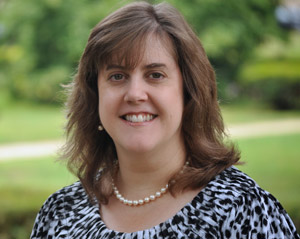 Assistant Professor of Pastoral Care the Rev. Dr. Leanna Fuller concerns herself with conflict. Church conflict, to be precise. And her book, When Christ’s Body is Broken: Anxiety, Identity, and Conflict in Congregations, uses two case studies to examine the issue toward constructive outcomes.
Assistant Professor of Pastoral Care the Rev. Dr. Leanna Fuller concerns herself with conflict. Church conflict, to be precise. And her book, When Christ’s Body is Broken: Anxiety, Identity, and Conflict in Congregations, uses two case studies to examine the issue toward constructive outcomes.
“My interest in congregational conflict began when I served on a pastoral staff prior to starting my doctoral program,” Leanna observes. “As a staff, we found ourselves unprepared to handle at the congregational level a decision by our denomination that brought out some emotionally charged, polarized positions of our members. Without a plan to handle the conflict, we went into reactive mode and, unfortunately, a destructive result ensued.”
So when Leanna entered her doctoral program at Vanderbilt, she wanted to discover ways to approach congregational conflict that could have the opposite outcome—a constructive one. Leanna’s pastoral experience highlighted for her that the members of a group—including a congregation—often do not realize the extent of difference each individual represents. “In a church, that difference extends to one’s understanding of denominational identity, biblical authority, theological interpretation, and more,” notes Leanna. “A given church may well not be as homogenous as its members might think. So when a congregation’s assumptions of ‘sameness’ are called into question, anxiety can run high.” And it’s the church leaders’ approach to dealing with that anxiety which can make all the difference in whether the resolution of the conflict is constructive or destructive.
Leanna advises pastors to develop an intentional plan for dealing with congregational conflict—before the conflict arises! Some of the first steps, she says, include acknowledging that anxiety will be present in such circumstances and that, the more serious the conflict, the more time it will take to resolve it constructively. “Trying to ‘resolve’ conflict prematurely—for example, by congregational vote—may settle the issue on paper, but rarely does a ‘quick fix’ actually resolve anything. In fact, it usually creates more problems by circumventing the cultivation of understanding and creating a gap between the ‘winners’ and ‘losers.’ It’s not just okay for a congregation to live with anxiety for a bit of time—it’s often actually helpful in leading to a constructive outcome,” she notes.
In considering how best to deal with difference in congregations, Leanna’s book looks through three lenses—those of psychodynamic psychology, social psychology, and theology—to identify different kinds of difference and how we deal with difference. She goes on to suggest ways of drawing out in a congregation the diversity that’s already present so that, when conflict arises, it doesn’t take people by surprise and therefore unduly heighten their anxiety. Leanna advocates preparing church leaders who can remain calm in circumstances of conflict while staying connected to the people in the congregation. “Well prepared, well connected leaders can cultivate constructive conversations among church members. They can facilitate small group discussions so that all voices are heard and preempt uncharitable behaviors that are out of bounds.”
Leanna regularly conducts adult education series, workshops, and pastors’ retreats on the topic of congregational conflict.
